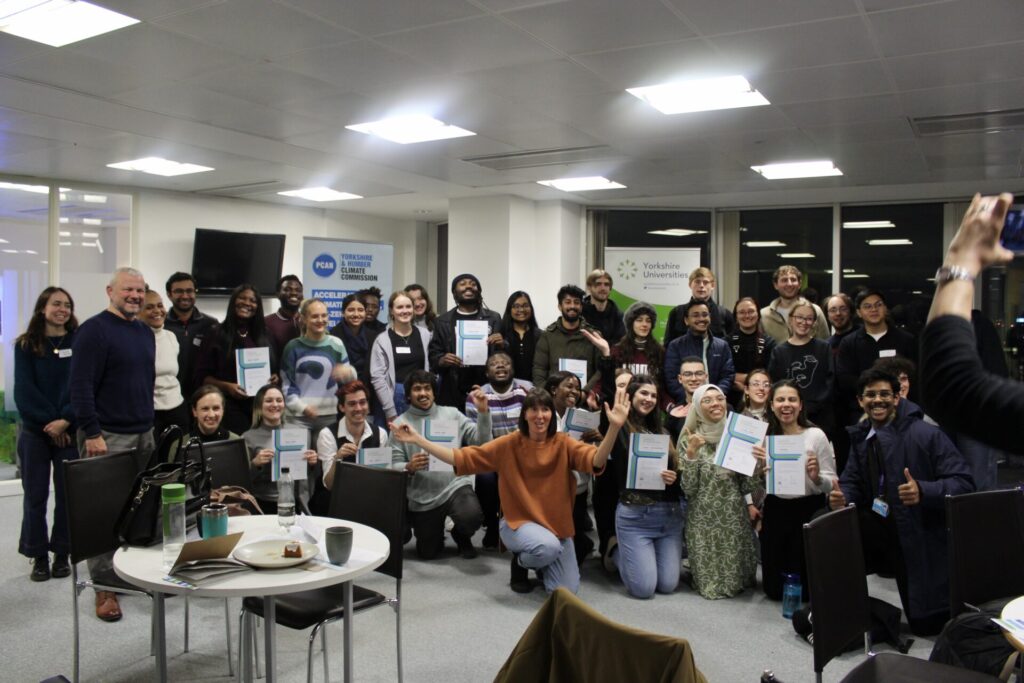Yuki Gauchan and Monika Antal, Yorkshire Universities
On 1 December 2023, jointly with the Yorkshire and Humber Climate Commission (YHCC) and the UPP Foundation we hosted a Multi-University Challenge Day on sustainability. The event showcased the power of collaboration among students from across the twelve universities in Yorkshire. Working together, they generated innovative ideas on a challenge that helped advance the Regional Climate Action Plan.
This day marked a significant milestone for the YU-UPP Regional Sustainability Service-Learning Pilot Project. The students, representing diverse academic disciplines, ranged from undergrads to PhD candidates and brought a rich blend of skills and perspectives to the challenge. Among the subjects studied we had: geography, psychology, international relations, finance, law, worldbuilding and creature design, computer and cyber security, popular music, environmental science, natural and built environment just to name a few.
These 32 students were divided into three, well-mixed groups (A, B, and C) and were asked to develop ideas on how we might engage more students with sustainability while studying at university. This theme was jointly set with the YHCC as it directly aligns with the Regional Climate Action Plan priority on advancing education and engagement.
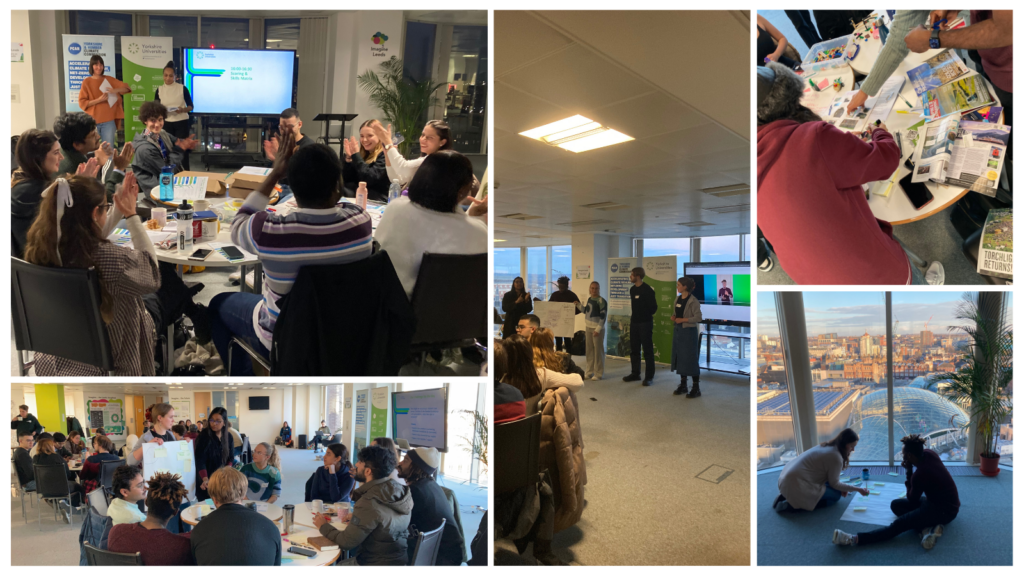
Students were set the task to bring together their ideas in each group and combine them into a single proposal. What truly stood out about this event are the remarkable students who participated in it. Not only did they offer insightful personal sustainability tips, but they also displayed their creativity, ability to work in a team, their insights and experience, and care for communities throughout the challenge. This was a truly great opportunity to discuss with experts, raise awareness, and learn about sustainable actions among students.
The day commenced with a warm welcome from Dr. Peter O’Brien, Executive Director of Yorkshire Universities (YU), Rosa Foster, Co-Chair of the YHCC, and Kay Cameron from the UPP Foundation. Monika Antal then set out the day’s aims and objectives.
The aims and objectives
The aim for the day was:
To work together and tackle a common theme which has direct impact on the region and helps take forward the YHCC’s Regional Climate Action Plan.
What we wanted to achieve:
- Demonstrate the value of working in collaboration through YU.
- Enable students to mix and network from other institutions than their own.
- Gather constructive input into the project’s good practice guide.
- Record footage on the day to complement the project reporting and produce resources YU can use for communications.
- Increase awareness of sustainability service-learning solutions and experiential learning opportunities across the region.
The challenge:
How might we encourage students from across Yorkshire & the Humber to engage with sustainability whilst they are at university?
The process
Dr. Clare Martynski from the Priestley Centre for Climate Futures guided the students through an iterative ideation process which formed the basis for developing and presenting their ideas. The process involved the following five key stages:
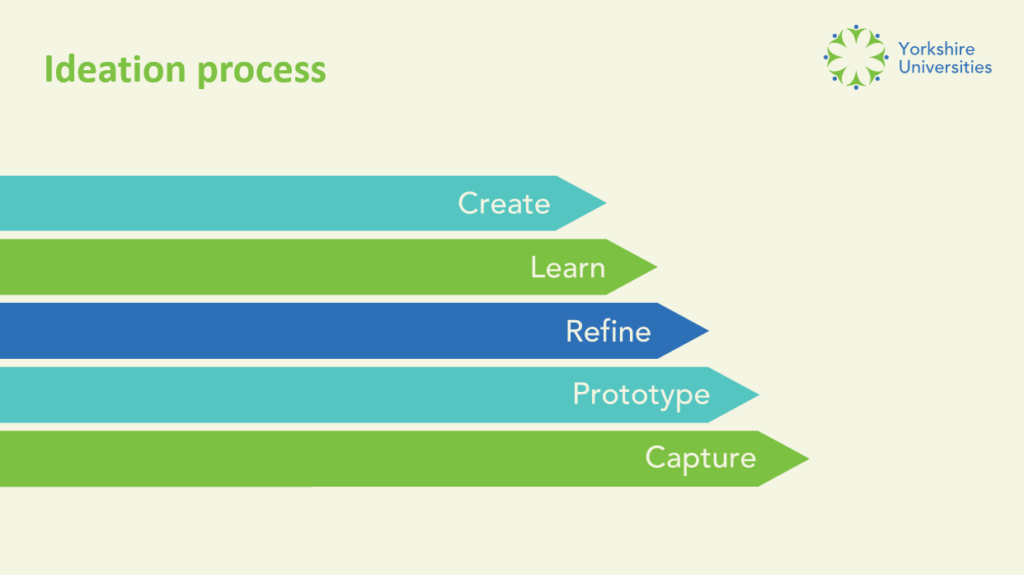
- Create: Brainstorming and capturing all ideas.
- Learn: Interviewing sustainability experts to gain insights and advice on their ideas.
- Refine: Narrowing down ideas collectively.
- Prototype: Creatively bringing ideas to life by using props.
- Capture: Finalising and practicing presentations.
The proposals and presentations
Group A’s “Uni Sell Hub” proposal involved a platform for students to sell and purchase goods such as clothes, furniture, and appliances. It introduced an education and information hub and a module to raise sustainability awareness across departments. The idea included a points and incentive system, weekly sustainability indicators, and events.
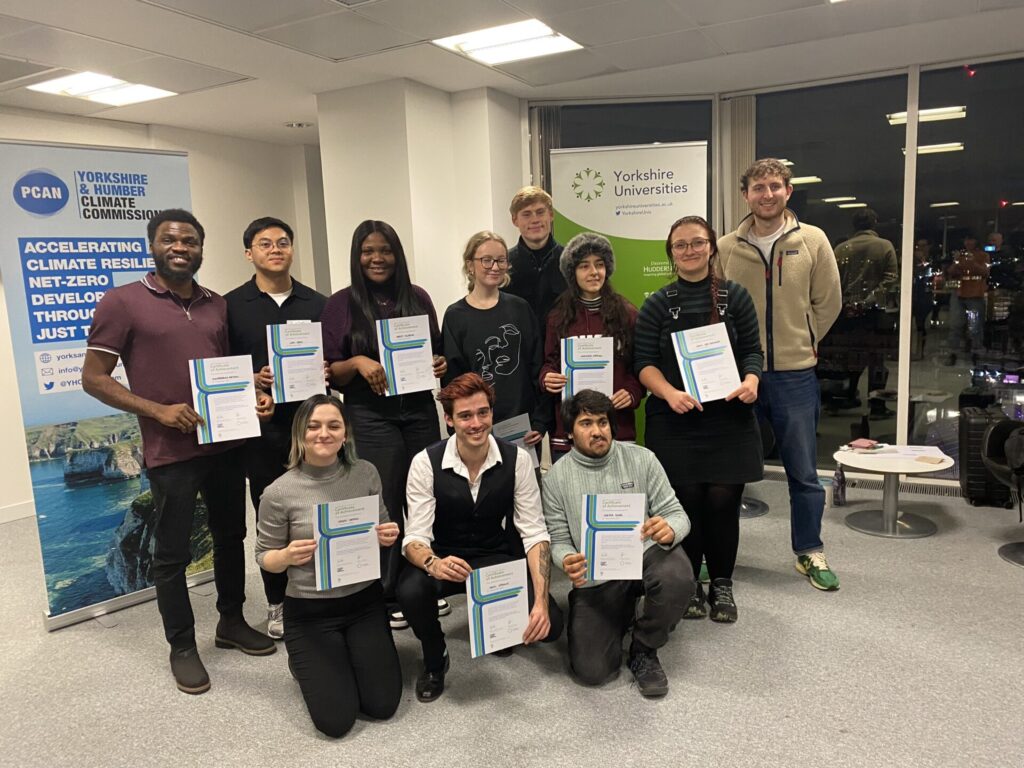
Group B: The “Eco Sprint” project aimed to educate students about sustainability to initiate behavioural change. It focused on making students aware of their carbon footprint and food consumption within university cafes and canteens by labelling food items. The Eco-Sprint service-learning project allowed students to become carbon-certified and track their sustainability progress throughout their university journey and beyond.
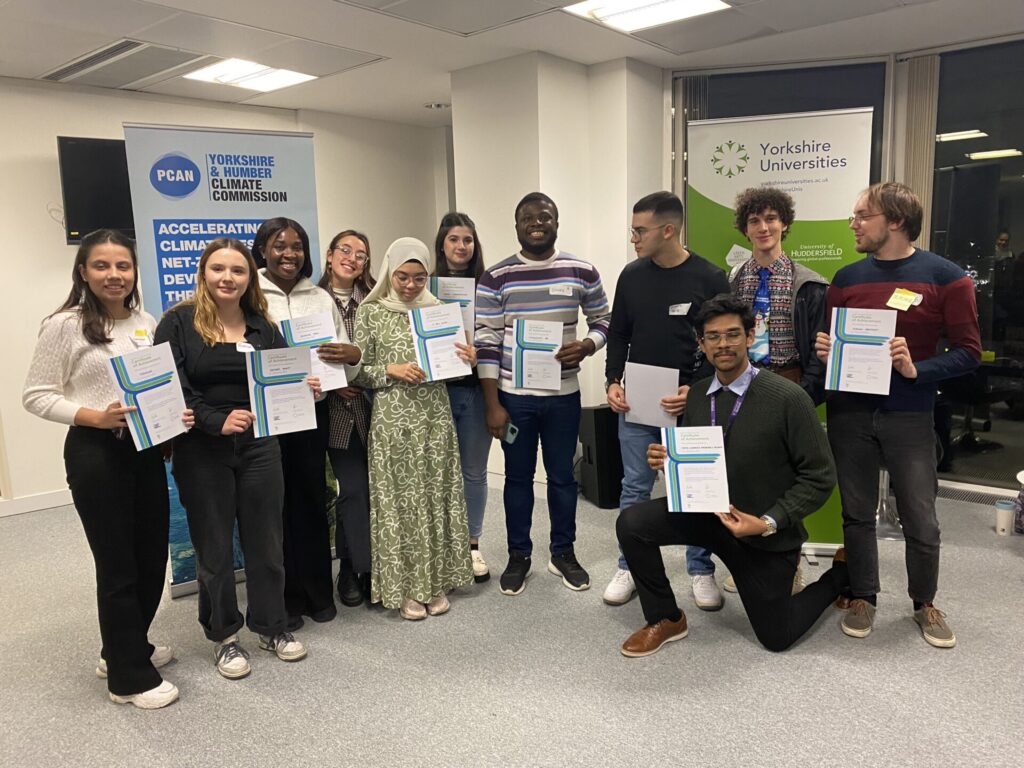
Group C: They proposed establishing “Sustainability Synch Creative Labs”, a portal-based events system across all twelve universities, where representatives of Yorkshire Universities at each institution would act as a network connecting the different universities and collaborate with student groups and sustainability leads.
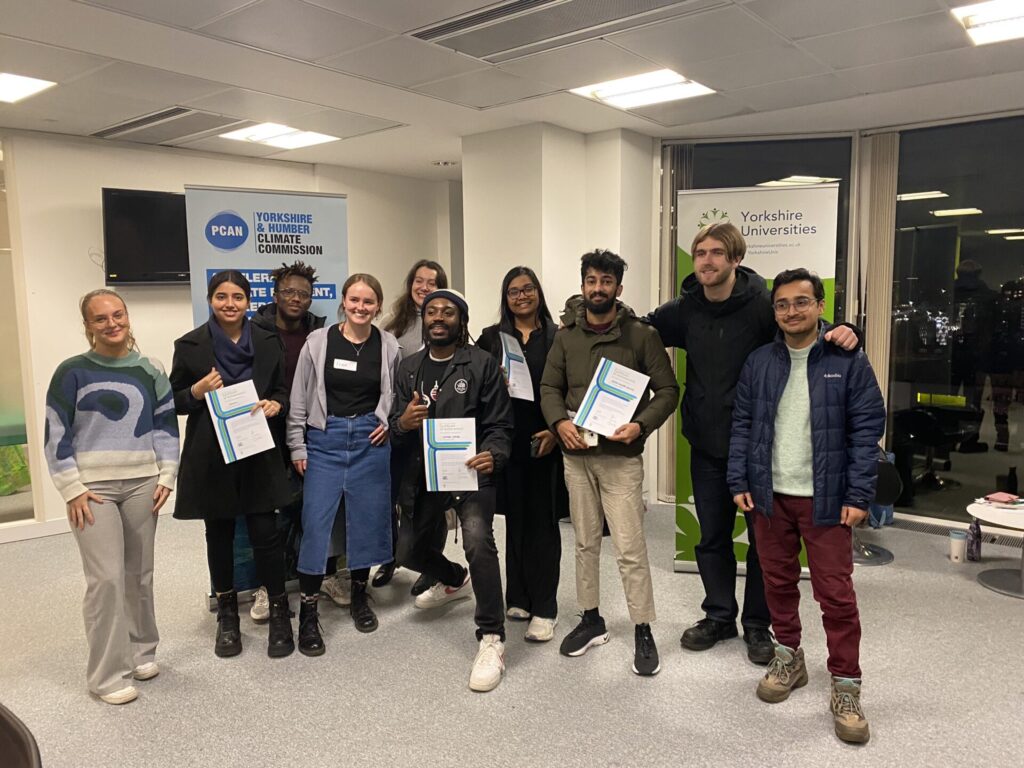
These labs would serve as spaces for students to develop solutions, products, and art focused on the environment and social responsibility. To keep students engaged, they suggested hosting three major sustainability celebrations annually, alongside bi-weekly gatherings. These events would recognize innovative and creative sustainability projects, featuring inspirational talks, exhibits, and performances. This proposal aimed to foster sustainability through collaboration across Yorkshire Universities.
These innovative ideas all shared a common thread – they focused on aspects highly pertinent to students and young people.
Why is the emphasis on student-centric ideas crucial for sustainability?
It’s essential because students and young people represent not only the future but also a dynamic force in driving change today. By tailoring sustainability initiatives to their interests and needs, we can ensure greater engagement and commitment to sustainable practices. This approach acknowledges that students and young people hold significant potential to instigate positive change through their daily choices and actions, creating a ripple effect that extends well beyond their academic years.
The results
As for the results, instead of ranking the groups first to third, the judges decided on a first-place winner and two joint second-place winners.
The judges really enjoyed the strong concept that Group C developed and how it tapped into the Yorkshire Universities model and looked at the potential of regional collaboration. The judges felt the idea developed by Group A was highly feasible and based a on a strong and simple business model.
Group B’s presentation was not only a very creative presentation, but their idea has real focus and coherence, it had a link to the curriculum, and it has the potential to create behaviour change beyond the university environment. Into their model, they also threaded in a recognition that they’re part of a bigger place than the university and that they were a part of the community. Which is why we thought “Eco Sprint” deserved the first place!
Congratulations to everyone!
Students participating in the YU Multi-University Challenge Day were issued a ‘Certificate of Achievement’ recognising their contribution in taking forward the YHCC’s Climate Action Plan’ which was endorsed by YU, the YHCC and the UPP Foundation. They also completed a sustainability skills assessment session that aimed to help articulate the experience and skills utilised.
Thank you to everyone involved in bringing together these incredible, engaged students from across the region who have blown us away with the amazing level of collaboration and innovation!
Let’s conclude with some sustainability tips from our students: remember to turn off lights when not in use, take eco-friendly steps whenever possible, avoid food shopping on an empty stomach, and as the holiday season approaches, why not consider exploring pre-loved gift options!
